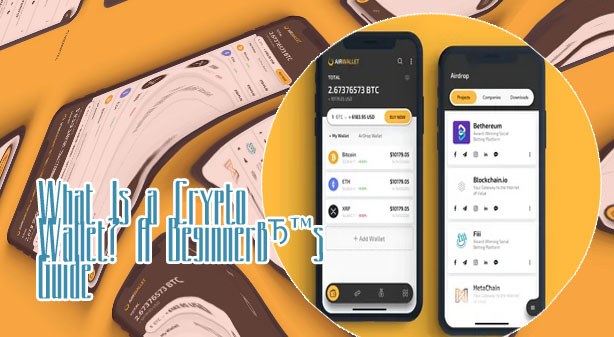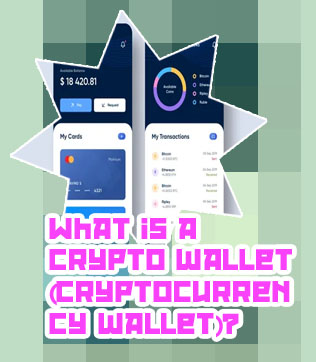Crypto waller

Restore your DeFi Wallet with a 12-words recovery phrase.Access advanced features, like governance, and more.Manage Ledger assets on Desktop easily.
Easy Crypto’s wallet is self-custodial, which offers you complete control of your wallet and means that creating a backup is crucial for safeguarding your digital assets. If you lose access to your wallet (due to device loss or malfunction for example), a backup will be the only way to retrieve your cryptocurrencies. Crypto waller A key concept to understand is that cryptocurrencies aren’t physically stored anywhere; they exist as data on a Blockchain. Your wallet serves as the keeper of the keys – a public key (like your account number) and a private key (similar to a bank card’s PIN).
How to buy crypto wallet
One way to choose a wallet is by looking at the website of the cryptocurrency you’re hoping to store. There are many single-purpose solutions built for individual cryptocurrencies. But if you’re planning to protect multiple kinds of cryptocurrencies in one place, it’s a good idea to shop around. Here’s how to know what’s right for you. Crypto Wallet for Buying, Staking & Swapping Based on IDEMIA’s biometric card technology, the B.CHAIN crypto hardware wallet solution provides users with a secure vault to protect their keys outside of their smartphone, in a familiar card form factor. This biometric card allows crypto users to securely derive keys from their crypto wallet seed, store them, and easily use them to sign a crypto transfer, giving users the ability to take custody of their keys and truly control their coins.

Learn more about crypto wallets
CoinMarketCap: Crypto Tracker Multi-Chain Crypto Wallet Sign up for early access. Spend your cryptocurrency on everyday expenses.
Wallet crypto
Each wallet will have its own set of attributes. In general though, the steps you typically follow when sending or receiving funds using a crypto wallet include: Hardware Wallets Unless you’re making daily crypto trades or have only a modest amount of money invested in crypto, we recommend you don’t store your crypto in a custodial wallet. Best practices for holding crypto include purchasing a hardware wallet for offline storage. Your next best option is a “noncustodial” software wallet or app. We’ll look at both options here in an effort to help you find the best crypto wallet for your own situation.
- Payment in cryptocurrency
- Cryptocurrency bitcoin price
- Buy dogecoin
- Where to buy new crypto coins
- Akoin crypto
- Buy dogecoin paypal
- Cryptocom sell to fiat wallet
- Crypto exchange
- Polygon crypto
- Bitcoin cryptocurrency
- Create cryptocurrency
- Inu passes no cryptocurrency
- Best crypto buying platform
- Cryptocom news
- Maker crypto price
- How many btc are there
- Shibusd crypto
- How to invest in cryptocom
- Bitcoin trend
- How much is dogecoin
- Cryptocom card
- Wallet crypto
- Apps cryptocurrency
- Crypto coin wallet
- How to fund crypto com account
- Btc live price
- Crypto com earn
- Coinbase cryptocurrency prices
- Who owns crypto com
- Cryptocom app review
- Best way to buy bitcoin
- Crypto rewards credit card
- New crypto to buy
- 1 btc in usd
- Crypto nft app
- Cryptocurrency prices
- How to buy tectonic crypto
- When will all btc be mined
- Btc vs dollar
- Dogecoin price usd
- Crypto to buy now
- Best broker to buy dogecoin
- How to withdraw money from cryptocom
- Crypto fees
- Staking crypto
- Cryptos
- Buy bitcoin online
- Nano crypto price
- Market cap of crypto
- How does btc mining work
- Can you buy dogecoin on cryptocom
- The crypto
- Where to buy crypto
- Launching dedicated crypto team its push